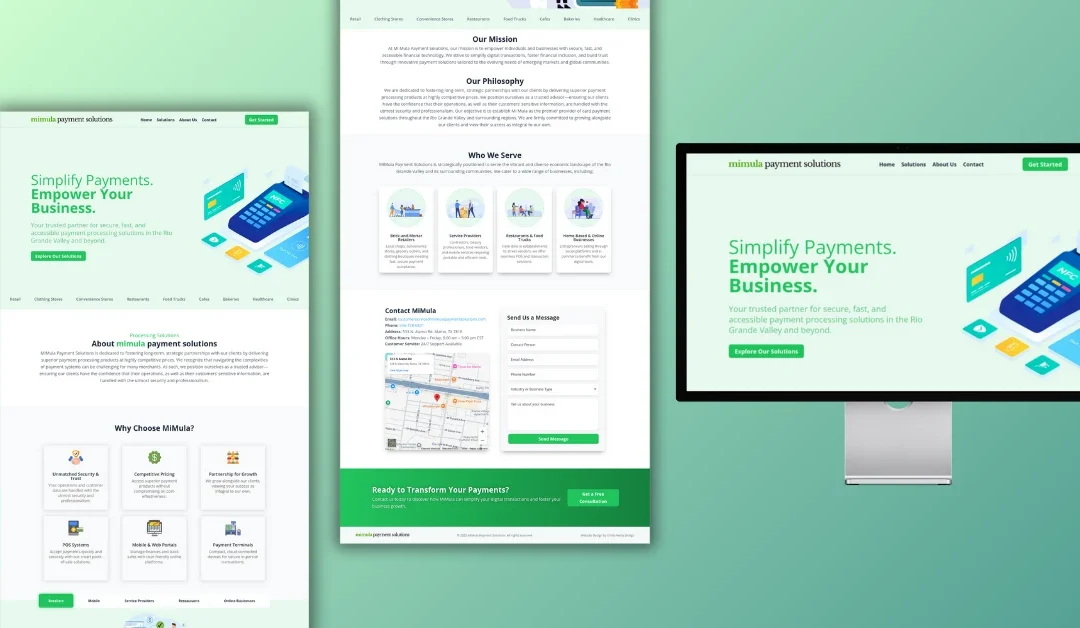In today’s digital age, having a website isn’t just about showcasing your products or services; it’s also about protecting your business and building trust with your customers. One crucial piece of that puzzle is a privacy policy. At Ericks Webs Design in McAllen, Texas, we understand that as a small business owner, you want to create a professional online presence while being compliant with regulations. Let’s dive into what a privacy policy is, why it’s essential for your business, and how you can effectively implement one.
What is a Privacy Policy?
A privacy policy is a legal document that outlines how your business collects, uses, stores, and protects the personal information of your website users. Whether you run a quaint coffee shop in McAllen or a consulting agency, a privacy policy informs customers about their rights and how their information will be handled.
Real-Life Example: A Local Coffee Shop
Imagine you’re a local coffee shop owner named Maria. You’ve recently launched a website to showcase your menu and allow customers to place orders online. This means you’ll be collecting personal information like names, phone numbers, and email addresses. Without a privacy policy, customers might hesitate to provide their information due to fears about how it will be used. By publishing a privacy policy, you reassure customers that their data is safe, which can lead to increased sales and customer loyalty.
Why is a Privacy Policy Important?
1. Builds Trust with Customers
In an era when data breaches are common, consumers are increasingly concerned about their privacy. A clearly defined privacy policy helps to establish transparency. When customers can see that you care about their privacy, they’re more likely to engage with your business.
2. Compliance with Legal Regulations
Data privacy laws can vary by location, but many regions, including Texas, have regulations that mandate businesses to have a privacy policy. For example, if your website collects any personal data from users in California, you may be subject to the California Consumer Privacy Act (CCPA), which mandates clear disclosure of user information practices. Non-compliance can result in hefty fines and legal issues, taking a toll on your small business.
3. Competitive Advantage
In South Texas, where many small businesses compete for the same clientele, a solid privacy policy can set you apart. Customers will feel more secure choosing a business that prioritizes their privacy over one that doesn’t address it at all.
4. Protection Against Legal Liabilities
Implementing a privacy policy safeguards your business from potential lawsuits. If a customer believes their data has been mishandled, having a transparent policy denotes that you’ve made an effort to comply with guidelines, possibly shielding you from legal repercussions.
How to Implement a Privacy Policy
Step 1: Determine What Information You Collect
Start by making a list of the types of personal data you collect. This might include:
- Names
- Email addresses
- Phone numbers
- Payment info
Understanding the scope of your data collection will inform your policy’s depth and detail.
Step 2: Outline How You Use Their Data
Next, specify how you use that information. Are you using it to send newsletters, improve your services, or process orders? Transparency regarding your practices reduces uncertainty and builds trust.
Step 3: Detail Data Protection Measures
Your customers want to know how their data will be stored and protected. Discuss your security measures—like encryption and secure payment processing. This shows your commitment to safeguarding their information.
Step 4: Consider User rights
Clarify user rights regarding their data. Customers should know how they can access their information, request deletions, and opt out of communication. Making this clear enhances transparency.
Step 5: Consult a Professional
While it’s possible to find templates online, the best approach is to consult with a legal expert or a professional web designer like Ericks Webs Design. We can craft a customized privacy policy suited to your business needs, ensuring compliance and detailed protection.
Updating Your Privacy Policy
Once you’ve established a privacy policy, be sure to update it regularly. If you change how you collect information or introduce new technology (like chatbots or new data analytics tools), reevaluate your policy to ensure it reflects these changes. It’s also good practice to inform your customers whenever updates are made, further enhancing trust.
Get Started Today!
At Ericks Webs Design, we believe that every business deserves a strong online presence. Adding a privacy policy is just one of the many ways we can help you protect your business and build customer trust. If you’re unsure where to start or need assistance in developing a privacy policy, sign up for a free consultation with us today! Let us help you create a professional and trustworthy website that meets all legal obligations.
By following these guidelines, you not only fulfill legal requirements but also foster a compassionate relationship with your customers. Protect your small business in South Texas by beginning with a strong privacy policy—because your customers deserve to feel safe!
Security










